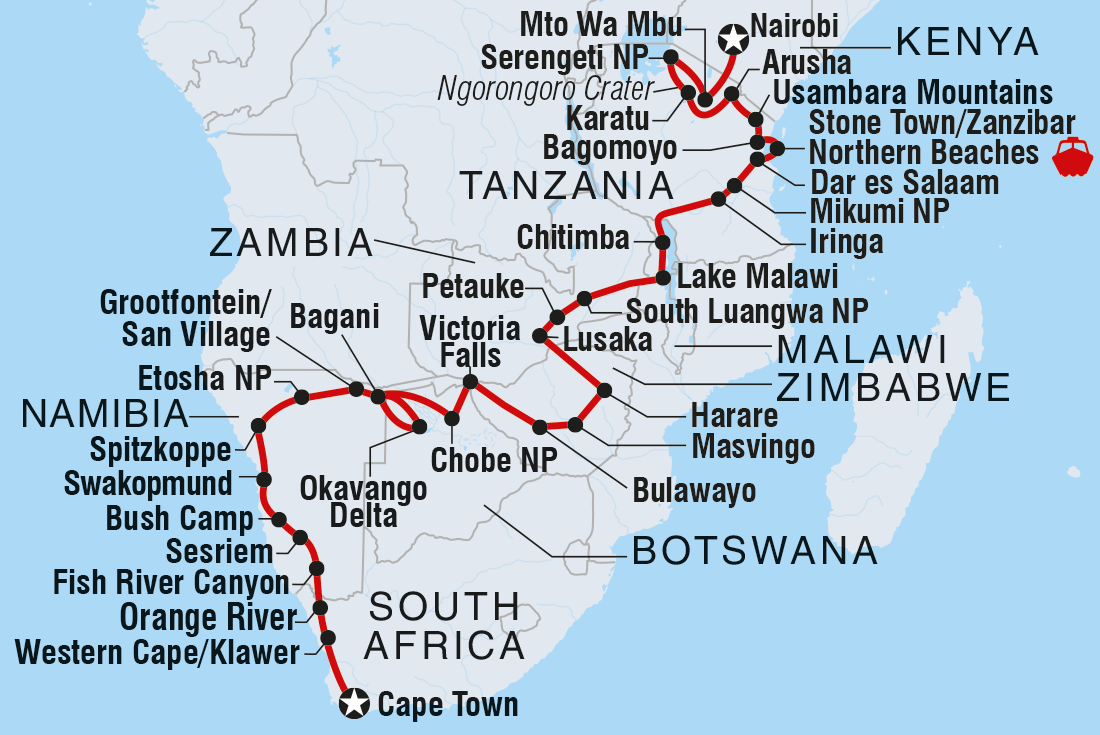- Key Info
- Overview
- Photos
- Dates

Travel from coast to coast and through the heart of southern Africa on a 49-day overland journey
- With included wildlife viewing experiences like game drives, tracking walks and safaris, you are guaranteed to encounter a diverse array of Africa’s iconic wildlife.
- Wake up before dawn and scramble to the top of a massive Sesriem dune for a dramatic sunrise view across a vast sea of undulating sand.
- Glide down Botswana's Okavango Delta on a mokoro, with a local at the helm using a pole to guide your journey through the rich waterways.
- Discover the largest ruins in sub-Saharan Africa – Great Zimbabwe. This World Heritage-listed site dates back to the 11th century.
- Chill out on the white sands of Zanzibar’s northern beaches and spend a night exploring the ornate alleyways of Stone Town.
- Accommodation on this trip is mainly in two-person canvas dome tents with camping mattresses supplied.
- The type and variety of accommodation are determined by conditions on each of our routes. Each route is different - on some, we use a mixture of campsites and wild camps; on others, we also use hotels. In Africa, it's not usually practical to camp when staying in towns and cities, so we use hotel accommodations and eat out in local restaurants.
- There may be the occasional night stop when we stay on the grounds of a hotel or at a campsite, which may also have rooms/cabins available. In this case, there may be a choice of camping or upgrading to a room. Rooms cost approximately USD 40-100 per room per night for a twin room and cannot be pre-booked. Standards of these rooms vary greatly, and we recommend viewing the room before purchasing the night's accommodation. The day-by-day itinerary advises when upgrades may be possible (subject to availability).
- Keep in mind that if we are staying in dormitory accommodation, you may have to share with other passengers or be split into same-sex rooms.
- Campsites do have facilities, but they usually aren't to the same standard you would find in Western countries. For example, the bathroom facilities can be very basic. Toilet paper is rarely provided, and shower facilities can be as simple as a hose pipe spurting out cold water. Wild camps have no facilities at all.
- At times, there may be spare tents in the vehicles. Unfortunately, these cannot be used without the purchase of a single supplement. This is to ensure the tents avoid wear and tear or are clean and ready for the customers arriving on the next section of the trip.